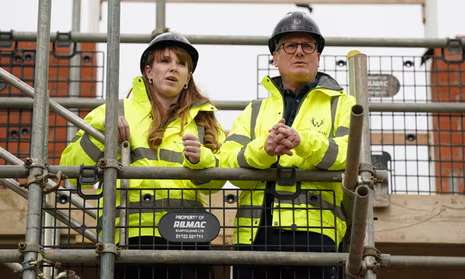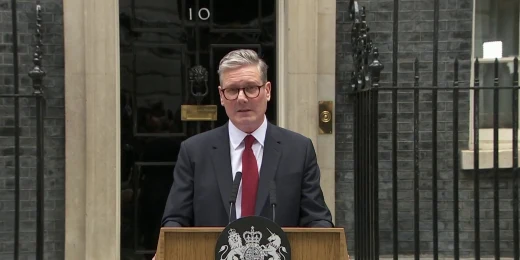Local councils will soon be required to adopt mandatory housing targets, as part of the planning reforms to be revealed on Wednesday in Keir Starmer’s first King’s Speech.
This ambitious legislative package, emphasizing economic growth, marks a significant milestone for the Labour Party, being the first of its kind in 15 years.
Prime Minister Starmer is set to introduce over 35 bills, placing the economy at the forefront of his administration’s agenda.
Over the next year, Labour aims to enact laws on planning reform, devolution, and public transport.
While economic growth remains the government’s top priority, there will be no legislation to lower the voting age or to penalize employers for not prioritizing the training and recruitment of British workers.
“Now is the time to take the brakes off Britain,” Starmer said ahead of the speech.
“For too long, people have been held back by their backgrounds rather than their talents and hard work. I am determined to create wealth for people across the country. It is the only way our country can progress, and my government is focused on supporting that aspiration.
“Today’s new laws will take back control and lay the foundations of real change that this country is crying out for, creating wealth in every community and making people better off – supporting their ambitions, hopes, and dreams.”
Keir Starmer
Starmer’s first King’s Speech will introduce a broad spectrum of measures, predominantly centered on the economy.
Key among these is planning reform, a testament to Labour’s commitment to being “builders, not blockers.” In its inaugural week, Labour reversed the previous administration’s de facto ban on onshore wind farms, signaling a boost in clean energy construction.
Liberalization Of Planning System
On Wednesday, the Prime Minister will announce the next phase of the party’s plans to liberalize the planning system with a bill reinstating mandatory housing targets for local authorities.
This move counters last year’s relaxation of these targets by former Housing Secretary Michael Gove, who faced pressure from Tory backbenchers concerned about preserving local character.

Additionally, the government will urge local authorities to collaborate on identifying regional infrastructure needs, aiming to prevent individual councils from obstructing broader plans.
Officials have disclosed that a consultation on the new housing targets will commence within two weeks, with implementation expected by autumn.
Angela Rayner, the Housing and Local Government Secretary, will lead the planning proposals and oversee a separate bill on English devolution.
Local authorities will be mandated to develop not only housing plans but also local growth plans detailing their strategies to support industry and the economy.
Transport Secretary Louise Haigh will champion bills to renationalize the railways and enhance public sector involvement in local bus networks.
Under the railways bill, services will return to public ownership once existing contracts with private operators expire.
The bill will establish an arms-length body, Great British Railways, to monitor passenger satisfaction and introduce network-wide improvements such as automatic compensation.
The buses bill will empower local leaders to initiate publicly owned bus services, providing greater control over public transport.
Not all proposed bills are economically focused. Starmer is anticipated to introduce a House of Lords reform bill, potentially setting a mandatory retirement age of 80 for members of the upper chamber.
Additionally, he is expected to revive the phased smoking ban plan, originally proposed by his predecessor Rishi Sunak, which was shelved during a legislative rush before the election.
Despite these comprehensive plans, some longstanding Labour policies, like lowering the voting age to 16, are not included.
Government insiders maintain that economic growth is the current priority, suggesting that voting age reforms might be addressed closer to the next election, sparking speculation that the proposal could be deferred indefinitely.
READ ALSO: GSS Latest Report on Unemployment Sparks Call for Swift Action























